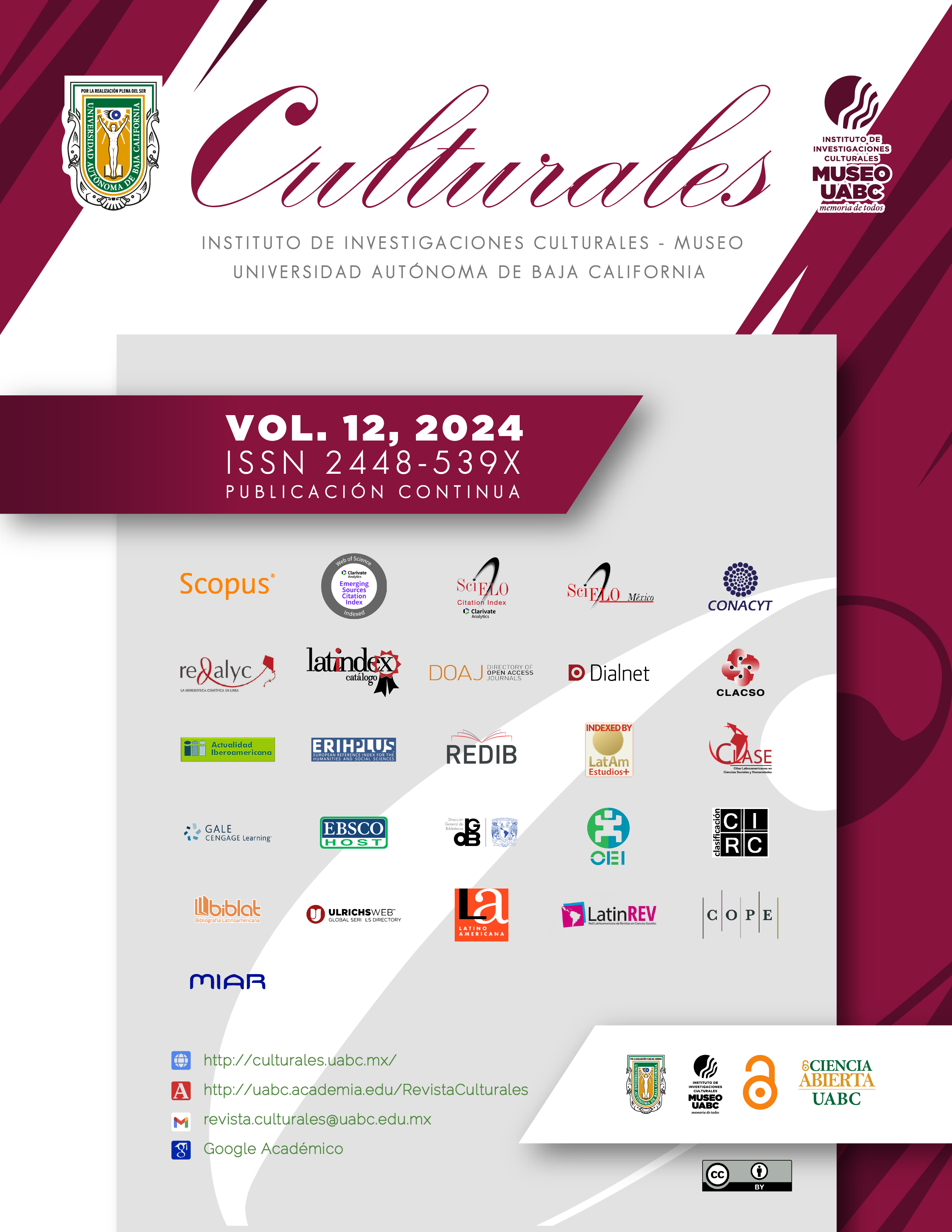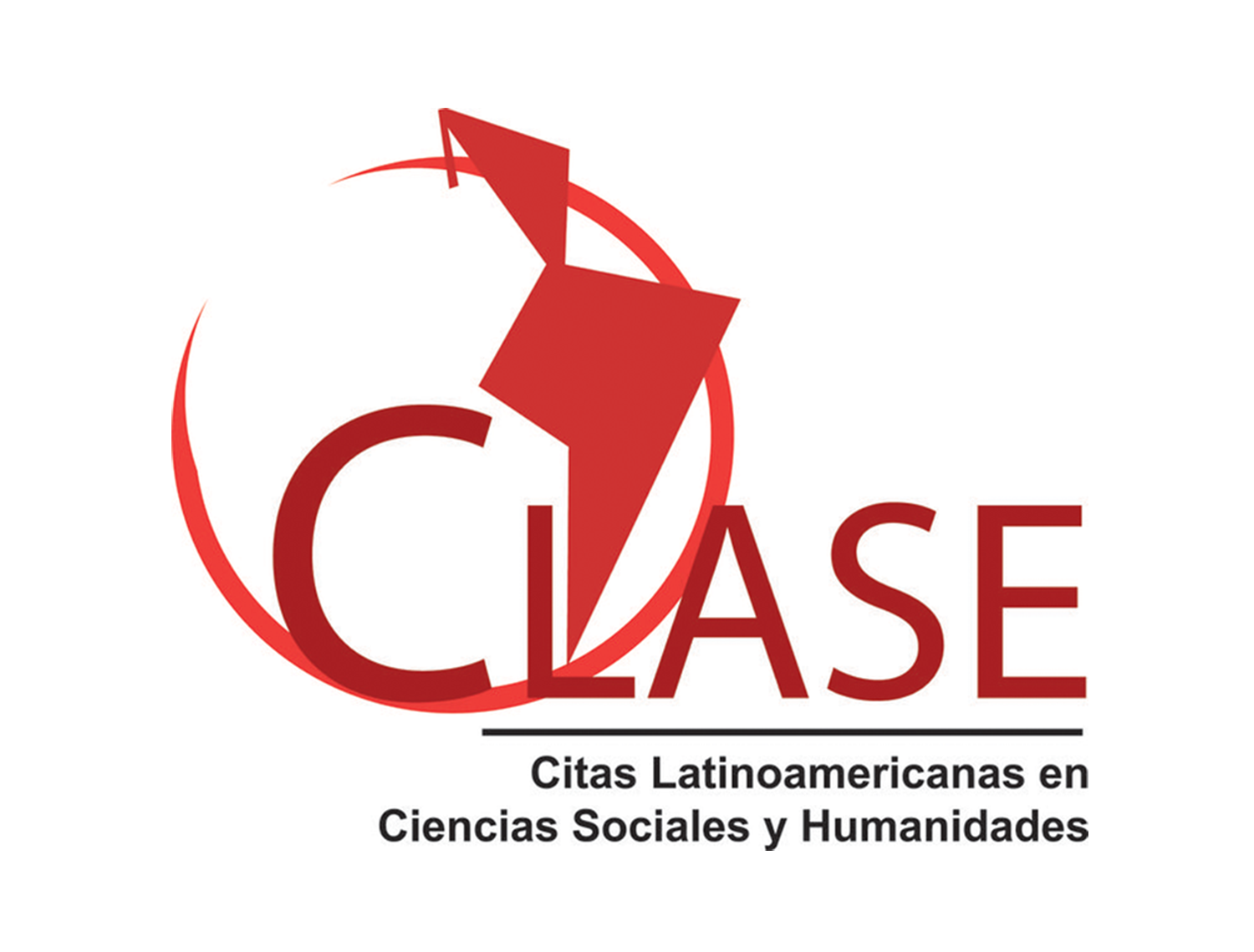After Half a Century (1966) and the decline of Shell as a modernizing agent in Venezuela
DOI:
https://doi.org/10.22234/recu.20241201.e861Keywords:
Venezuela, modernization, petroleum industry, cinema, film archivesAbstract
Framed within the study of petroculture and the business cinema of the global petroleum industry, this article analyzes the representation of the modernizing impact of oil in Lagunillas (Zulia State) in the film After Half a Century. This film was commissioned by the Shell Company from the production company Neofilm as Shell reorganized its corporate media and discourses due to the end of oil concessions. Our research’s historical-pragmatic and textual-discursive perspective encompasses the context of production, distribution, and exhibition; as well as the film’s functions, topics, and textual and discursive construction. The analysis allowed us to identify continuities and ruptures in After a Half Century regarding a selection of films produced by Shell’s Venezuelan film unit until 1965. We may interpret these findings as signs of a crisis in Shell’s corporate discourses as the company faced the decline of its role as a modernizing agent in Venezuela.
Downloads
References
Armitage, P. (director). (1954). Proud Ships [película]. Shell Film Unit.
Azuaga, R. (2000). El cine como habla: identificación de los temas presentes en tres largometrajes de ficción venezolanos (1989-1991) [Trabajo de ascenso inédito]. Universidad Central de Venezuela.
Barthes, R. (1986). Retórica de la imagen. En Lo obvio y lo obtuso: imágenes, gestos, voces (pp. 29-47). Paidós.
Barthes, R. (1980). S/Z. Siglo Veintiuno Editores.
Berman, M. (1988). Todo lo sólido se desvanece en el aire. Siglo Veintiuno Editores.
Bueno, R. (2006). Hacia una definición de los beneficios sociales como Gasto Deducible del Impuesto a la Renta. Derecho & Sociedad 27, 67-75.
Canjels, R. (2024). Framing Local and International Sentiments and Sounds: Unilever and Royal Dutch Shell in a Changing Nigeria. En V. Hediger, F. Hoof & Y. Zimmermann (Eds.), Films that Work Harder: The Circulation of Industrial Film (pp. 473-494). Amsterdam University Press.
Canjels, R. (2021). Creating Partners in Progress: Shell Communicating Oil During Nigeria’s Independence. En M. Dalquist & P. Vonderau (Eds.), Petrocinema: Sponsored Film and the Oil Industry (pp. 208-224). Bloomsbury.
Carrera, G. (director) (s/f). Las industrias venezolanas de buena voluntad [película]. Neofilm, Compañía Shell de Venezuela.
Carrera, G. (director). (1964a). Vida en la comunidad I: las escuelas [película]. Unidad Fílmica Shell de Venezuela.
Carrera, G. (director). (1964b). Vida en la comunidad II: la recreación [película]. Unidad Fílmica Shell de Venezuela.
Casamiglia, H. y Tusón, A. (2002). Las cosas del decir: manual de análisis del discurso. Ariel.
Chiavenato, I. (2011). Administración de recursos humanos: el capital humano de las organizaciones. McGraw-Hill.
Cilento, A. (2005). Infraestructura petrolera en Venezuela 1917-1975: conquista del territorio, poblamiento e innovación tecnológica. En J. Martín y Y. Texera (Eds.), Petróleo nuestro y ajeno: la ilusión de modernidad (pp. 109-172). Universidad Central de Venezuela.
Clouzot, H. (director). (1953). Le salaire de la peur [película]. CICC; Filmsonor; Vera Film; Fonorama.
Colmenares, M. (2020). Excavando en los acervos fílmicos de las compañías petroleras en Venezuela: una experiencia de archivo. Fuera de campo 4(2), 10-43. https://www.uartes.edu.ec/fueradecampo/volumen-iv-numero-2-enero-2020/
Colmenares, M. (2019). Venezuela en marcha: imaginario social y representaciones de la nación moderna en el cine empresarial de la industria petrolera en Venezuela (1947-1968) [tesis doctoral, Universidad Autónoma de Baja California]. Repositorio Institucional UABC https://hdl.handle.net/20.500.12930/1398
Compañía Shell de Venezuela (1967). Resumen de actividades de la Shell en Venezuela 1966.
Compañía Shell de Venezuela (1966). Resumen de actividades de la Shell en Venezuela 1965.
Coronil, F. (2002). El Estado mágico: naturaleza, dinero y modernidad en Venezuela. Universidad Central de Venezuela.
Dahlquist, M. & Vonderau, P. (2021). Introduction. En M. Dahlquist & P. Vonderau (Eds.), Petrocinema: Sponsored Film and the Oil Industry (pp. 1-11). Bloomsbury.
Damluji, M. (2021). Oil Media Archives. En M. Dalquist & P. Vonderau (Eds), Petrocinema: Sponsored Film and the Oil Industry (pp. 15-32). Bloomsbury.
Damluji, M. (2016). Visualizing Iraq: Oil, Cinema and the Modern City. Urban History 43(4). https://scalar.usc.edu/anvc/urban-sights-visual-culture-and-urban-history/visualizing-iraq-oil-cinema-and-the-modern-city-by-mona-damluji
Damluji, M. (2015). The Image World of Middle Eastern Oil. En H. Appel, A. Mason & M. Watts (Eds.), Subterranean Estates: Life Worlds of Oil and Gas (pp. 147-164). Cornell University Press.
Damluji, M. (2013). Petroleum’s Promise: The Neo-Colonial Imaginary of Oil Cities in the Modern Arabian Gulf [tesis doctoral, Universidad de California en Berkeley]. eScholarship Open Access Publications from the University of California. https://escholarship.org/uc/item/7qk5c7kj
Davison, A. (2024). Understanding the Contribution of Music and Sound in Industrial Films. En V. Hediger, F. Hoof & Y. Zimmermann (Eds.), Films that Work Harder: The Circulation of Industrial Film (pp. 757-778). Amsterdam University Press.
Distrito Bolívar (2021, 23 de febrero). En Wikipedia. https://es.wikipedia.org/wiki/Distrito_Bol%C3%ADvar
Eco, U. (2000). Tratado de semiótica general. Lumen. (Obra original publicada en 1976)
Eisenstadt, S. (2000). Multiple Modernities. Daedalus, 129(1), 1-29. http://www.jstor.org/stable/20027613
Elsaesser, T. (2009). Archives and Archaeologies: The Place of Non-Fiction Film in Contemporary Media. En V. Hediger & P. Vonderau (Eds.), Films that Work: Industrial Film and the Productivity of Media (pp. 19-34). Amsterdam University Press.
Filloy, O. (1995). Unidad fílmica de la Shell de Venezuela 1952-1965 [tesis de licenciatura inédita]. Universidad Central de Venezuela.
González, M. y Guilarte, C. (1992). Producción cinematográfica de la Creole Petroleum Corporation [tesis de licenciatura inédita]. Universidad Central de Venezuela.
González, L. (2013). Acción colectiva y espacios de poder en una ciudad-petróleo: Ciudad Ojeda, 1937-1989 [tesis doctoral, Universidad del Zulia]. Acta Académica. https://www.aacademica.org/luis.j.gonzalez.oquendo/21
Hediger, V., Hoof, F. & Zimmermann, Y. (2024). Introduction: A Sequel and a Shift. En V. Hediger, F. Hoof & Y. Zimmermann (Eds.), Films that Work Harder: The Circulation of Industrial Film (pp. 19-33). Amsterdam University Press.
Hediger, V. & Vonderau, P. (2009a). Introduction. En V. Hediger & P. Vonderau (Eds.), Films that Work: Industrial Film and the Productivity of Media (pp. 9-16). Amsterdam University Press.
Hediger, V. & Vonderau, P. (2009b). Record, Rhetoric, Rationalization: Industrial Organization and Film. En V. Hediger & P. Vonderau (Eds.), Films that Work: Industrial Film and the Productivity of Media (pp. 35-50). Amsterdam University Press.
Lovera, N. (director). (1960). Venezuela y petróleo III: sus comunidades [película]. Unidad Fílmica Shell de Venezuela.
Nemes, A. (director). (1960). Venezuela y petróleo II: sus técnicas [película]. Unidad Fílmica Shell de Venezuela.
Nemes, A. (director). (1957). Pueblo petrolero [película]. Unidad Fílmica Shell de Venezuela, Producciones ABN.
Rebolledo, C. (director). (1967). Pozo muerto [película]. El Techo de la Ballena.
Riesco, M. (2014). “Progreso”: una idea controvertida en una sociedad paradójica. Educación y Futuro 30, 15-38. https://dialnet.unirioja.es/servlet/articulo?codigo=4685041
Roffé, A. (1990). Una introducción al análisis fílmico. En T. Hernández (Coord.), Pensar en cine (pp. 93-132). Consejo Nacional de la Cultura.
Rosenfeld, P. & Feng, L. (2011). Risk of Hazardous Wastes. Elsevier. https://doi.org/10.1016/C2009-0-62341-2
Sánchez, R. (2012). La cultura como elemento esencial en la movilidad social con trayectoria ascendente. Contribuciones a las ciencias sociales (17). https://www.eumed.net/rev/cccss/21/rsc.html#google_vignette
Silva-Ferrer, M. (2013). Modernidad, Estado, cultura y medios de comunicación en la Venezuela de Hugo Chávez (1999-2009) [tesis doctoral, Freie Universität Berlin]. REFUBIUM Repositorium der Freien Universität Berlin. https://refubium.fu-berlin.de/handle/fub188/10622
Straka, T. (2016). Introducción. En T. Straka (Ed.), La nación petrolera: Venezuela, 1914-2014 (pp. 7-14). Academia Nacional de la Historia.
Tinker, M. (2009). The Enduring Legacy: Oil, Culture and Society in Venezuela. Duke University press.
Urbaneja, D. (2013). La renta y el reclamo: ensayo sobre petróleo y economía política en Venezuela. Alfa.
Vidal, A. (director). (1971). La batalla de Carabobo [película]. Neofilm, Compañía Shell de Venezuela.
Vidal, A. (director). (1967). Los primeros frutos [película]. Neofilm, Compañía Shell de Venezuela.
Vidal, A. (director). (1967). Los criollitos [película]. Neofilm, Compañía Shell de Venezuela.
Vidal, A. (director). (1967). Por qué usar buenas semillas [película]. Neofilm, Compañía Shell de Venezuela.
Vidal, A. (director). (1966). Después de medio siglo [película]. Neofilm, Compañía Shell de Venezuela.
Zazzarino, M. (2022). Magic and Haunting: Oil Media at Venezuela’s Lake Maracaibo. Media+Environment 4(1). https://doi.org/10.1525/001c.36323
Published
How to Cite
Issue
Section
License
Copyright (c) 2024 Maria Gabriela Colmenares España

This work is licensed under a Creative Commons Attribution 4.0 International License.
Culturales journal allows you to share, copy and redistribute the material in any medium or format; adapt, remix, transform, and build upon the material for any purpose, including commercially, by properly crediting the work and providing a link to the license indicating whether changes have been made.
Culturales journal is licensed under the Creative Commons Attribution 4.0 International License (CC BY 4.0)























